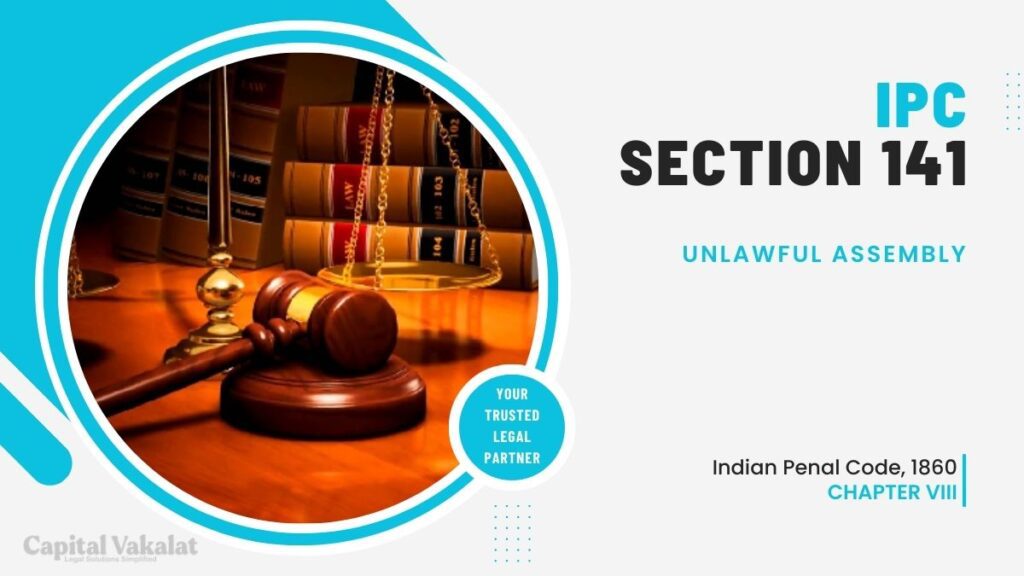Unlawful assembly is a term that frequently appears in discussions about criminal law. It is defined under Section 141 of the Indian Penal Code (IPC).

In this article, we will delve into the intricacies of Section 141 IPC and explore what constitutes an unlawful assembly, its elements, penalties, landmark cases, the role of the police, legal defenses, and much more.
Understanding Section 141 IPC
Section 141 IPC deals with unlawful assembly. An assembly of five or more individuals can be termed unlawful if their common object is to commit an unlawful act. These individuals may belong to the same group or may have come together with the common intention of committing a crime.
Elements of Unlawful Assembly
To establish an unlawful assembly, the following elements must be present:
- A minimum of five individuals must form the assembly.
- They must have a common object.
- Their common object must be to commit an unlawful act.
- The assembly must have the potential to cause fear or harm to others.
The Offense of Rioting
When members of an unlawful assembly use force or violence in pursuit of their common object, it can lead to the offense of rioting. Section 146 IPC defines the offense of rioting and prescribes the punishment for the same. We will discuss this offense in more detail.
Punishments Under Section 141 IPC
Section 141 IPC itself does not prescribe any punishments. The punishments for unlawful assembly are provided under other relevant sections, such as Section 143, Section 144, and so on. The severity of the punishment depends on the nature and consequences of the unlawful act.
Landmark Cases
Several landmark cases have shaped the interpretation of Section 141 IPC and its application. Some of these cases have played a pivotal role in establishing legal precedents in India’s criminal justice system.
Role of the Police
The police play a crucial role in handling unlawful assemblies. They are responsible for maintaining law and order, preventing violence, and taking appropriate legal action against those involved in unlawful assemblies. Understanding the police’s role in these situations is vital for both citizens and law enforcement agencies.
Legal Defenses
Individuals accused of being part of an unlawful assembly have the right to defend themselves. Legal defenses can include demonstrating that they were not part of the assembly, lacked the requisite common intention, or that their actions were not in furtherance of the common object. We will explore these legal defenses in detail.
Conclusion
Section 141 IPC is a significant provision in Indian criminal law that deals with unlawful assemblies. Understanding the elements and implications of this section is essential for all citizens. It helps maintain social harmony and ensures that individuals are held accountable for their actions in the event of unlawful assemblies.
FAQs
Can an assembly be termed unlawful if there is no common object?
No, for an assembly to be unlawful, it must have a common object to commit an unlawful act.
What are the punishments for unlawful assembly under Section 141 IPC?
Section 141 IPC itself does not prescribe punishments. Punishments are determined by other relevant sections based on the nature and consequences of the unlawful act.
How does the police handle unlawful assemblies?
The police are responsible for maintaining law and order, preventing violence, and taking appropriate legal action against those involved in unlawful assemblies.
What legal defenses can individuals accused of being part of an unlawful assembly use?
Legal defenses can include proving that they were not part of the assembly, lacked the requisite common intention, or that their actions were not in furtherance of the common object.